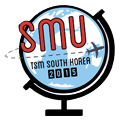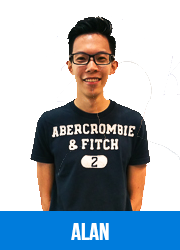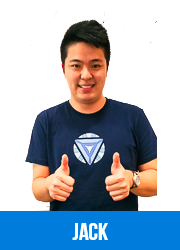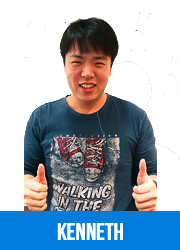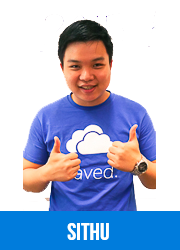Difference between revisions of "1415T2g1 South Korea/Reflection/day3"
Twmyint.2012 (talk | contribs) |
May.koh.2012 (talk | contribs) (→May) |
||
| Line 345: | Line 345: | ||
<div style="width: 70%; margin-left: 20px; float: left; padding: 20px; "> | <div style="width: 70%; margin-left: 20px; float: left; padding: 20px; "> | ||
<div style="font-size: 20px">Day 3: The tour</div> | <div style="font-size: 20px">Day 3: The tour</div> | ||
| − | <div> | + | <div> |
| + | <br/><font size=4><b>MangoPlate</b></font><br/> | ||
| + | |||
| + | Lina, Joon, Michael, and Audrey from MangoPlate had shared with us the importance of having a strong team and the importance of understanding the users’ needs. | ||
| + | Some key takeaways from Mangoplate will be: | ||
| + | #The importance of gaining customers’ trust. In order to gain their trust companies need to find a way to ensure the integrity of your data and review | ||
| + | #Importance for having personalization and feedback their needs by first understanding what they lack | ||
| + | #Understanding the importance of online, offline marketing and partnership to gain and retain clients | ||
| + | #When creating an application we need to ensure that we are solving a problem that people really want to solve | ||
| + | #The importance of having a team that shares a common goal | ||
| + | # Make sure that everyone in the team value add to your business in a way or another. | ||
| + | |||
| + | |||
| + | <br/><font size=4><b>Startup Alliance</b></font><br/> | ||
| + | After the presentation I realise the importance of knowing the existence of such organization like Startup Alliance. As these organization provide does not only provide guidance for start-up but also create opportunities to get the right contacts through attending the networking sessions organized by these organization. I personally believe that having the right opportunity and mentorship is important. | ||
| + | |||
| + | <br/><font size=4><b>D.camp</b></font><br/> | ||
| + | D-camp allows me to understand the importance of sharing experiences with the fellow startups as through sharing you are able to gain feedbacks and get advice from them. I also felt that joining an incubators with similar concept as D.camp will be great as they are able to provide rhw startups with devices and facilities such as notebooks, phones and servers required throughout their development phases. | ||
| + | |||
| + | |||
| + | <br/><font size=4><b>VCNC</b></font><br/> | ||
| + | VCNC created a product that is like a facebook for couples. | ||
| + | Some key takeaways from VCNC are: | ||
| + | # The importance of first mover advantage | ||
| + | # must set a standardized vision and aims | ||
| + | # Trust and delegation of leadership role within the company | ||
| + | # Have a decision owner for every project | ||
| + | |||
| + | <br/><font size=4><b>Zikto</b></font><br/> | ||
| + | Created a product name Arki a wearable that track whether you are having a correct posture | ||
| + | Some key learning point: | ||
| + | # important have a good product and a good design | ||
| + | # Important to know your target market to come out with a pricing strategy | ||
| + | # Kickstarter can be more than a crowdfunding platform as it can also be used as a platform to track the market demand for your product | ||
| + | I was really impressed by how Zikto view Kickstarter as not just a platform for crowdsourcing but also a platform to test how receptive the potential clients are to their product (Arki). | ||
| + | |||
| + | <br/><font size=4><b>beSuccess</b></font><br/> | ||
| + | During the networking session with BeSucess I have learnt the importance of networking. I have learnt that importance of contacts. As when you have good contacts it will be easier for you to penetrate into other countries. | ||
| + | |||
| + | </div> | ||
</div> | </div> | ||
<!-- END OF REFLECTION --> | <!-- END OF REFLECTION --> | ||
| Line 355: | Line 394: | ||
<div style="position: absolute; top: 10px; right: 10px; width: 50px; height: 20px; overflow: hidden"> | <div style="position: absolute; top: 10px; right: 10px; width: 50px; height: 20px; overflow: hidden"> | ||
<div style="margin-top: -4em"> | <div style="margin-top: -4em"> | ||
| + | |||
==<div>ShaoJun</div>== | ==<div>ShaoJun</div>== | ||
</div> | </div> | ||
Revision as of 20:00, 1 May 2015
South Korea
| Day 2 |
Contents
Day 3: Reflections
Startup Alliance is a semi-government organization by Naver which aims to provide networking sessions and opportunities for local startups to liaise with global partners. They explained how various sectors of Korea’s startup ecosystem and how they support each other. With Startup Alliance to help with networking and with FuturePlay to help inventors tide over the initial stages of a startup and helping in areas such as patenting, Koreans are really well equipped to get into startups at lower risk. I hope that in future, more organizations will look into boosting startups and accelerating them in Singapore. D Camp is created under the Banks Foundation for Young Entrepreneurs to foster and boost Korea’s startup scene. They often provide office spaces and resources to startups similar to other accelerator programs. They provide courses to help improve the skills of the team. Sonia mentioned that all the startups in Korea are linked and know each other relatively well. It feels that the startup scene in Korea is a big family, who are willing to help each other out in times of need, fostering the younger members of the family to grow and succeed which seems relatively different from Singapore. Zikto’s ARKI is an interesting product that fulfils and actual problem in which I am currently facing as I was often pinpointed by my relatives that my walking posture is wrong and I have felt the detrimental effects of slouching. Brian mentioned that he worked with major names such as Naver to provide promotions on their platform as well as gathering free awareness on his product, a win win situation to help startups to make their product viral. In VC&C, Edward shared his secret recipe with the class about what are the steps that he takes when entering a new market. Firstly, he conducts on market research and gathers absolute data as well as relative data on the demand of applications that are similar to Between and studies the culture about the market and how can Between be readjusted to fit the needs of the locals. This is because even though couples are everywhere in the world, the dating culture differs between different countries. He would then localize his applications by shipping out new features that are relevant to the culture of the market. Next, he builds a local team and gather their expertise about the local market as well as building partnerships with the big companies that can help Between become viral. He quoted that women were the most important player in turning Between viral because the female gender tend to share good applications to their friends spontaneously and their friends would want their boyfriends to use the application. The virtuous cycle should also be offline and online to get the maximum attention of the general public.After vigorous viral marketing on the platforms of big names, the application will finally move to mass adoption by the market. Edward also shared with us the popular platforms that are famous specific to the different countries ( for example. Instagram users in Thailand spend at least 2-3hrs on the application everyday). Finally, for BeSuccess, they organize events for local startups to gain exposure to a global audience. We met Mr Myunghyun Ahn and he joined the company a few months ago. Mr Ahn shared various knowledge about Koreans. He shared why Google was unable to beat Naver was because once websites get listed in Naver, Google will not be able to search for them. He shared the nightlife culture and customs as well as his experiences with match making and that it was a really casual event and many Koreans actually go there often. There was a better market in terms of match making in Korea as compared to Singapore as people tend to have a negative image about online dating and matchmaking.
MangoPlate
During the Q and A session, I also better understood the marketing strategy of how a start-up should hit the market. For example, one should start with the market in SE Asia as a test bed before embarking on breaking into the US and Europe market. This is to ensure that the product has countless iterative improvements before they are officially launched worldwide. I also learnt the each there is no one size fit all marketing strategy. For instance, although the marketing strategy that Mango Plate uses may work in Korea, it may work in Singapore. This is due to the various cultural and taste of Singaporeans. For instance, most Singaporeans stay close to hawker centers and would not use Mango Plate application to find a good restaurant when they can get access to food easily. Hence, most Singaporeans will only use Mango Plate during special occasions which would mean that the number of user rate will not be as significant as Korea. Thus, a different marketing strategy will have to be used such as providing discount codes to entice Singaporeans to use Mango Plate.
Startup Alliance
D. camp
Zikto
From this presentation, I learnt about the importance of protecting one's startup idea from being copied via the application of patents and also operating in "stealth" mode as shared by the presented. I also learnt that the the goals of start-ups is to improve the lives of people by solving problems which the current market does not have a solution to. This is because having a good idea which does not rectify any problem will lead to no where.
VCNC Between
From the presentation by Edward, I learned that although VCNC had faced many stiff competition from other companies, one should not be too bothered by them as it will only be a waste of time. By simply doing what VCNC does best such as the improvement of code efficiency and others, it has allowed VCNC to stay ahead of the pack. Edward also shared that the mantra VCNC lived by was “If you want to bite, don’t nibble.” This is to say that as start-ups, one should be aggressive – after targeting on something, just do it once and do it good with no regrets.
I also learnt from VCNC that although having the technical know-how is good, that is not sufficient enough to work in VCNC if employees do not share the same passion as VCNC. This shows how important it is to ensure that employees of a start-ups do not have a conflict of interest (i.e. should not have different passion). This is because a conflict of interest will hinder the progress of the start-up. I also learnt that as a start-up, it is important to have one’s goal fixed on going global so as to fully maximize the potential of the start-up. Furthermore, it is also important to know who the target market are as different consumers in different countries can have different taste and preference towards dating. It is also important to target the women consumer base in some situations. For example, in the case of between, as women tend to be more aware of such cute applications and would want to use them, they will often rope in guys too. Hence, the consumer base will indirectly increase too. Lastly, I also learnt about the importance of having an A-team (Best of the best people in the team) in a start-up. This is to allow each member weaknesses to be covered by another team member’s strengths so that they can complement each other. Not only will this lead to cost savings, it also allows each team member to know and appreciate each other more which improves productivity.
BeSucess
Mango Plate
Mangoplate emphasised on being you-centric when it comes to identifying and solving the real world problem. The way that Mangoplate drives passion in solving a real world problem is to solve a problem that they themselves face.
Mangoplate also taught us that the best way to create stickiness of an application is to provide social elements such as allowing uses to connect and share new food places with their friends, and also to incentive them by giving them rewards for each trustworthy comment that they leave on the site.
They also emphasized a lot on personalisation and paying attention to their users' behaviour. For example, through a prolonged period of time, the application will be able to learn about the users' pattern and prompt them to write a review about a restaurant based on the time that they often leave feedbacks. In my opinion, I feel that this will also increase the stickiness of the application as well.
Startup Alliance
Startup Alliance hosts meet ups, road shows, networking and seminars for Korea start ups. Even though they focus on the Korea ecosystem only, they requested us to present about Singapore's start up industry which shows that they took a step further to understand more about the global start up ecosystem. It gives them some sort of comparison in order to constantly improve themselves. These information could also turn out to be useful for them in the event they decided to go global and fund for non-Korean companies.
Zitko
Zitko is probably one of the most well received start up as many of us are interested in the technology. Apart from being a crowdfunding website, Kickstarter also double up as a marketing platform. Kickstarter gathers many potential investors and it also gives you a good opportunity to validate your market demand. It also helps to get your start up on recognisable websites such as Tech in Asia, Wallstreet Journal and so on.
VCNC
VCNC's Between application is something that I am more familiar with as I once used the application. What I liked about the application is that it collates all pictures into a single place, making it easier to retrieve pictures and memories about you and your partner.
I learnt that it is very important to know your market well and know who you are targeting. VCNC has a very unique marketing strategy - they target only the females because then they will convince their partners to use the application as well. In order to do this, VCNC has to be very clear of the behaviour pattens of their market and the best way that their product can sell.
They also understand their international markets well and cater their strategies accordingly, which is something that we should put into consideration when we are looking to expand our start ups. For example, VCNC caters to its different markets by providing different variations of stickers, depending on their usage. They do not jump into a new market straight, but have made careful considerations on several factors such as the language barriers and customer behavioural patterns. I learnt that in order to enter an unknown market, I first have to be clear of what I know. For example, VCNC is only well versed in English, Chinese and Japanese, thus they first enter countries that have the above languages as their primary language.
I also learn that for new startups, networking is really important. As Startup Alliance mentioned, they often organized events for new startups to build their network with one another and with investors. Along the same line, D-Camp said that trainings are important for new companies, which is why they organized programs for new entrepreneurs.
From VC&C, I learn what to do before entering the market. Although VC&C is the first company in their industry to launch a couple-centric application – Between - they continuously do their research before expanding to another country’s market in order to personalize their approach. This is similar to what Carousell did to Thailand and Indonesia, where they added additional categories and different marketing approaches.
From Zikto, I learn that sometimes government and investments are not the only way to gain funds. They use crowdsourcing to measure the markets and at the same time, gain their funds. I believe this is aligned with what Mangoplate said, which is related to the trust of your users. For both companies, they believe that earning the trust of the people is the most important things of all. I think this is true. As customers come to put their trust with the company and use the products, the market will grow accordingly. Similarly, this will serve as a marketing strategy where users will spread the words to their friends.
We have a great time talking with people from BeSuccess over dinner. We learn that although their company is small, they also hire people on a project-basis. The company has a great culture where they trust each other and everyone is willing to work extra hours to complete their projects. This further emphasizes the importance of a good teamwork in a startup, since a startup usually have less people as compared to big companies thus allowing all of them to interact with one another closely. Every single part of the team has to feel that the company is theirs.
In the end, it is always about the people - both the users and the teams - and not the products solely. We have to think of the people first and what they need.
- We learnt that MangoPlate utilizes crowdsourcing to verify the existing restaurant data such as opening hours, locations, and to add new restaurants to its database. Crowdsourcing seems to be a trending and effective method for gathering accurate data.
- From Zikto, we learnt that Kickstarter not only serves the purpose of crowdfunding, but it also provides information about market demand for the company’s product and the demographics of the users that are interested in it.
- From Between, we learnt that there are multiple channels for generating revenue in the app:
- Freenium: sell emoji and stamps in the app.
- Advertising: sell dating ideas that feature paying organizations in the app
- Commerce: partner up with organizations to buy physical goods such as flowers to gift to one’s significant other through the app
- From our trip, we learnt these four recurring lessons for a successful startup:
- Solve a problem that real users are facing
- Get a capable team, which means people who have the same passion and experience
- Obtain funding
- Build up connections and networking early to do the above.
Today, we visited MangoPlate, Startup Alliance, D.Camp, Zikto, VCNC and BeSuccess.
Learning about all the help that the companies in Korea are able to have access to, I realised that the Korean government has put the money where their mouth is, coming up with these various organisations to give start-ups the best opportunities for survival. With about 50% of college graduates unable to find a job, it is an extremely appalling yet unsurprising figure. As the education level increases, it become inevitable that higher skilled jobs will run out. Therefore, it is an ideal opportunity to encourage entrepreneurship - to give these people jobs. Also by giving start-ups as much help as possible through the start-up eco-system, it gives these start-ups easy access to the less "essential" parts of building a company, and allows them to focus on their core business process, whether it is developing their product, or providing the best level of customer service to their clients, and hopefully, help them bridge the "valley of death" that start-ups usually face after the third year. I am extremely admirable to the efforts of the Korean government, and really felt that it gave me some headway into creating my own business. I was not really aware of any other ways of incubating my start-up apart from IIE. Learning how much help these companies can actually give to start-up has given me the impetus to look into the options that the Singapore start-up scene has to offer, giving me greater motivation and a sense of direction as to how to proceed with my start-up idea.
MangoPlate
Lina, Joon, Michael, and Audrey from MangoPlate had shared with us the importance of having a strong team and the importance of understanding the users’ needs. Some key takeaways from Mangoplate will be:
- The importance of gaining customers’ trust. In order to gain their trust companies need to find a way to ensure the integrity of your data and review
- Importance for having personalization and feedback their needs by first understanding what they lack
- Understanding the importance of online, offline marketing and partnership to gain and retain clients
- When creating an application we need to ensure that we are solving a problem that people really want to solve
- The importance of having a team that shares a common goal
- Make sure that everyone in the team value add to your business in a way or another.
Startup Alliance
After the presentation I realise the importance of knowing the existence of such organization like Startup Alliance. As these organization provide does not only provide guidance for start-up but also create opportunities to get the right contacts through attending the networking sessions organized by these organization. I personally believe that having the right opportunity and mentorship is important.
D.camp
D-camp allows me to understand the importance of sharing experiences with the fellow startups as through sharing you are able to gain feedbacks and get advice from them. I also felt that joining an incubators with similar concept as D.camp will be great as they are able to provide rhw startups with devices and facilities such as notebooks, phones and servers required throughout their development phases.
VCNC
VCNC created a product that is like a facebook for couples.
Some key takeaways from VCNC are:
- The importance of first mover advantage
- must set a standardized vision and aims
- Trust and delegation of leadership role within the company
- Have a decision owner for every project
Zikto
Created a product name Arki a wearable that track whether you are having a correct posture
Some key learning point:
- important have a good product and a good design
- Important to know your target market to come out with a pricing strategy
- Kickstarter can be more than a crowdfunding platform as it can also be used as a platform to track the market demand for your product
I was really impressed by how Zikto view Kickstarter as not just a platform for crowdsourcing but also a platform to test how receptive the potential clients are to their product (Arki).
beSuccess
During the networking session with BeSucess I have learnt the importance of networking. I have learnt that importance of contacts. As when you have good contacts it will be easier for you to penetrate into other countries.
MangoPlate
MangoPlate’s sharing session provided answers to two questions I’ve always had.
The chicken and egg problem
MangoPlate presented a great way to overcome the chicken-and-egg problem of marketplace businesses. They started with a database of 1000 restaurants as the founder himself was a foodie and had a passion for sourcing out great restaurants. The initial users came from expat friends who always asked for this excel list of great restaurants the founder compiled.
In other words, you already have both the chicken and egg to start with. This smaller group would then provide a base for further expansion into the wider community. Often, entrepreneurs worry about their business catering to a customer group that is too small or ‘niche’ (e.g. expats) and hence restricting their market size. However, this actually may not be bad because it keeps you focused and allows you to expand later on.
Getting users to generate content
To solve the problem of getting users to generate content (i.e. restaurant reviews), it is useful to first think about what TRIGGERS users to want to write a review. Following this line of thought, you would be able to then design the user experience to leverage on these triggers to entice users to generate content.
Startup Alliance
It was surprising to learn that there was a lack of diversity in Korea that affects the development of the start-up scene. Startup Alliance shared that Korea needs to embrace talents from overseas in order to grow its start-up ecosystem to a level that could possibly attempt to match that of Silicon Valley. This made me realise something that I’ve often taken for granted and thought ‘normal’ in Singapore – we are a truly cosmopolitan city and melting pot of people of different backgrounds, which brings a level of diversity that fuels creativity, entrepreneurship and innovation.
D. Camp
“Globalised Youth Culture” – this was the one line that left a deep impression on me. Although there may be certain risk-averse mindset deep-seated in Korean culture, the younger generation that has had opportunities to travel and study abroad is now breeding more creativity and new ideas. The Globalised Youth Culture that was born in Gangnam is the reason why Gangnam is now the heart of Seoul’s start-up scene. This is also a good reminder for us to constantly broaden our horizons through overseas experiences.
Zikto
I personally really love the Arki product and am amazed at how Zikto managed to pull off such a successful kickstarter campaign. I feel that Zikto is very strategic in its sales and marketing and this is something we can really learn from.
Starting with the kickstarter campaign, the next market they’re targeting for expansion is the kids market in Asia. Parents are willingly to spend money on their children if it were to help them later in their life (in this case, good posture and health), hence an attractive market. When we select target markets for our own start-ups, I’ve learnt that it is important to analyse the entire market and determine which would be the next lowest hanging fruit to target.
VCNC
In my start-up, the issue of a sustainable competitive advantage is often discussed and the first mover advantage is often dismissed by ourselves as ‘non-sustainable’. The lack of patentable intellectual property is also often a concern. However, I’ve learned at VCNC that the first mover advantage has truly worked for them and turned out to be a competitive advantage that has been difficult for its competitors to defeat. By focusing on what they do best, focus and continuously ship code fast, VCNC is able to maintain the dominating position in the market and even become part of culture which I find truly amazing (e.g. young people ask ‘Do you want to use Between?’ as a way to confess their feelings).
MangoPlate
MangoPlate is a restaurant discovery application that makes personalized recommendations for its users based on their food preference and by getting recommendations from the people in the user's social network.
I had a great time engaging with Lina, Joon, Michael, and Audrey from MangoPlate and I've learnt quite a few things:
- Set a goal that you can envision yourself working towards
- Focus on user-centric development and custom the service to the user's preference
- Work with partners and network to get to know people who can help with your business
- Retention of users through incentives like parties and gifts
- Keep a keen eye on user behavior to help you develop anything ranging from application development to marketing. This will help you find what triggers the user
- Solve a real problem with a kickass team and they must have the passion and drive to execute the project
Startup Alliance, D.camp, beSuccess
These 3 companies are platforms to provide start-ups with funding opportunities and learning opportunities thtough events like networking sessions and forums. Compared to Singapore, the South Korean support and interest in start-up is going strong. A recent survey was done in South Korea and 30%~ of undergraduates consider entrepreneurship as a possible career path. The growth and development of such support services help lower the risks of starting a business and I think this makes up part of the reason why fresh graduates are considering entrepreneurship as a possible career path.
VCNC
VCNC created the dating application Between. What contributed to their teamwork is their code of conduct which sets guidelines on how everyone should treat one another. Edward shared that this helps to prevent emotional arguments which can override logic and reason. Their code of conduct is very applicable in many different ways and it is also something that I can apply in my day to day interactions with people.
Zikto
Zikto is currently developing a wearable that corrects the body posture. It is up against competition against many different kinds of wearables in the market. After reflecting on his idea based on what I've learnt from the companies that we previously visited, I think that unless the product has been medically proven to be successful in correcting posture, the product will face difficulty in capturing the saturating market of wearable consumers.
On day 3 of company visit, we visited MangoPlate, Startup Alliance, D.Camp, Zikto, Value Creater and Company (VCNC) and beSuccess. From the visit to MangoPlate, which helps to provide community based food recommendations, they have gathered lots of user data to offer personalized data and experience. For example, they capture when does usually eats meals, what time range does a user usually writes for review and etc. I learnt that this approach of personalization can help a startup to gain better user experience by knowing the user habit of usage with the application. Another important point I perceived is for a startup it is very important to know the market and target to a specific user group first. Since this kind of startup business application usually encounter “Chicken and Egg Problem” (users vs restaurant), their approach to solve the issue is to stand of one side which is user and try to include as much restaurant data as possible from various sources and business partnerships. The CEO of the company told us before doing a startup there are 3 things that must be cleared.
- The problem – what problem you are trying to solve to. Try to be as specific as possible to have better focus
- The team – form your own A – Team where each members know each other strength and great teamwork
- The passion – All the employees/ members has the same goal and has the passion to execute the tasks all the time
From the visit to Startup Alliance, I learnt details of their main operations to bridge between startups and global/local investors and partners. They provide various networking sessions and seminars to have better reach out to more potential investors and building an active startup ecosystem in Kora. From the next visit to D.Camp, which is a startup incubator to raise startup companies in Korea startup landscape. I have learnt about operations about selection process startup companies, facilities and supports given to those incubator companies. I also found out that all the startups and organization know each other very well and supportive to each other. After D.Camp, the founder of Zikto, Brian shared us about their upcoming product called ARKI. Zikto was one of the incubator companies at D.Camp, they are working on health-related wearable device to track and recommend good walking posture.
As for another company visit after that, we went to VCNC, business development director for Between which is their flagship product for couple social app. He shared us about how VCNC approach for approaching to launch their application to new market/country. I learnt that they firstly do their market research about the target market and look out for any major cautious to be aware of. At the same time, they gather feedbacks and participant response to capture the demand and interest. They do necessary changes or approach at this stage if it is needed. After that, they incorporate the target market specific culture and immersed into the application. For example, creation of specific sticker for that market. And they setup viral marketing to increase the hype of target audience. Edward also shared us about incorporation of new related big feature to the mother Between app to expand their current user growth. He said there are many couples tends to give presents to the other and one of most requested feature from user response. Currently they are working hard to launch their new product which is a commerce platform integrated into the app. He also shared us some of the failures they have encountered for us to learn from mistakes. Some years back, they want to launch their product to various countries with localization of languages. However, they found that later users gave feedback that localization are not accurate and in the ways of correct usage. They have learnt the lesson that they shouldn't be so aggressive to expand the market quickly instead you should have built a strong based first so that easier to move forward in future. Starting with some of the specific target market and grasp the user support is more important for a startup in order to have strong presence.
The last company for the day is to beSuccess, which is a platform to organize events and meetups for local startups with global potential audience. They are going to e27 event in June at Singapore to meet with various investors and accelerators from various firms in the region. Similar to Startup Alliance, their main operations are trying to link up between startup companies with potential investors in building up startup ecosystem in Korea. That reflects me that there are quite a few channels of opportunities for startup to have a chance with getting investors.
MangoPlate
According to MangoPlate, they are not earning any money now because they wanted to increase their user base. In order to earn money, they will need to collaborate with the shop owners or provide space for advertising. However, in this way, it will damage the user experience as advertisement on application can be annoying to the users. Also, MangoPlate will have the restriction with the shop owners. Thus if there was a bad review that is true, the shop owner might request MangoPlate to remove that review. In this way, if MangoPlate accept the owner request, the users will not be reading the real review. However, as they are in partnership, it is hard for MangoPlate to reject the owner request. Hence, with that, I learnt that signing a partnership with shop owner is not as simple as getting their data and providing them with customer only.
MangoPlate mentioned that you do the best when you follow your heart. So even if the pay is not as high as their previous job, they are still happy to do their start up – MangoPlate. That is because unlike big company, you are given freedom while doing your own start up. MangoPlate is able to fulfil the void that big companies are missing out.
3 point before starting a company:
- Are you solving real world problem?
- Do you have a team to execute it?
- Do you have the passion?
Past experience is not needed, but it acts as an additional value.
Startup Alliance
Startup Alliance is established last year which focus on connecting start-up together. They have networking community such as the biweekly coffee club, monthly book club that invites authors, and also the lunch club which happen frequently. They also arrange PayPal co-founder, Peter Thiel for a talk which he only attended the talk in Korea, Japan and Taiwan. Another event, Korean in Silicon Valley, organized by Startup Alliance invited speakers who work or live in Silicon Valley. They also hold a Japan Boot Camp where the member work with Japan for a start up scene.
Startup Alliance has several Go Global plans, such as the BeGobal Seoul, Asia Fest 2014 @ Taipei and a Vienna Start-up Program. To activate the Korea ecosystem, they also have the power talk which is held monthly and also the power support where free servers infrastructure is given to the start-ups.
A lot of forums are created such as the Fintech Forum, IoT focum and the entrepreneurship education with OEC. Currently Gangnam is gaining more and more start-up. The most recent additional is the Google Campus. Naver and TIPS office will be up soon.
Startup Alliance mentioned that there are promising signal in the Korea start-up industry. That is because there is an influx of talent to startup from elite school (人), investment from overseas (资) and Korean startup get acquired (出). Some example of Korea companies that went global are:
- KnowRe: implemented at 50 public school for math education
- VCNC: Between
- MEMEBOX: first startup accepted on Y combination program ($29M funding)
D.CAMP
D can represent a a lot of words such as Dynamic, Dream, Driven. It is founded in 2013 and provide education, online & physical platform and investment. It act as a hub for Korean startup ecosystem.
They have a lot of amazing program such as the D.Lunch, D.Pay, D.Mentor, D.Match, Party, D.Cision, D.Crisis, Office Hours. P.Day is the event that startup pitch their idea to the sponsor. D.Party happen monthly and different subject was given each time. There’s also the D.Cision which focus on people who can’t decide if they should do a start-up. So with this program, they can see if they are suitable for start-up. I felt that D.Cision is important because you can get a feel of how doing startup will be like.
In 2014, D.CAMP host a largest scale of event named the Startup Nations Summit 2014 which contain 45 countries.
D.CAMP also mentioned that according to statistics, Korean students want to enter into startup (343) while only 304 want to work in big companies. However, their parents strongly want their child to work in the big company. The statistics show that 39.5 parents wanted their child to work in big company while only 13.6 want them to work in startup.
D.CAMP classified themselves as an ironman suit because they empowered entrepreneur and help them in their start up.
Zikto
Zikto developed a wearable devices that detect your working posture. It also include other feature such as biometric because walking posture is unique and can be a password for everyone. They also have the smart home function whereby they will on the aircon when they realize that you are nearing. Other function such as Activity & Fitness Tracker, Body Balance Analysis.
Zikto has a nice design and is fashionable. The LED is hidden and they allow you to change the strap according to your mood. The future for Zikto is to move towards running posture. Currently Zikto only focus on 25-39 years old.
The working duration for Zikto is very long from 10am-11pm. However, when we are working in the company, we are still doing the company’s job. But if its own start-up, then it’s our own job.
VCNC - Between
"Couple's needs are universal, but dating culture is not" is a quotation mentioned by Edward. And I learnt that dating culture different by countries. Thus it is needed to have different marketing strategy for different target user group. It will be even more beneficial if you are able to become the part of the culture.
I also learnt that being the first start-up in that field, it may not be a disadvantage. Because for the Between application, they have other competitors. However, as they are the first start-up in that field, they have the first mover advantage whereby they gain supporter before their competitors.
MangoPlate Team consists of excellent team members who possess high achievements, wonderful profiles and experience. The team combination itself has made the startup strong as each of their contribution has big impact on the product and market position. As previous have shared with us, market research, product, team and process are the main pillars to build a startup. I believe this is not only applicable to Korea, but to all other countries. For MangoPlate, they are not the first mover and since they go into the market, there are similar products (competitors) are positioned in the market. What they differentiate themselves is the understanding of the user needs and different perspective of a product and habits (e.g. eating is the culture, it changes accordingly to the country, and just changing the language to enter new market is not right). Based on this understanding, they have enhanced their product and marketing strategy to reach out more users with zero income.
FuturePlay is planning to set up an ecosystem between the startups as they have limited resources and connections to make the business grows. So, when we visited Startup & Alliance, we understand the ecosystem between startups is very critical. Networking Seminar, Go Global programmes and activation of Ecosystem are the main things done by Startup & Alliance to provide opportunities for local startups to reach out to global partners. Acceleration of the Korean startup is well implemented by government, universities and various associations in Korea which is really amazing. In Myanmar, even the word called startup is not well known yet. I really wish Myanmar to catch up the pace and fill in its missing parts very soon. The main thing which amazes us is the office area for those local startups. Since from Day 1, the offices which we have seen are awesome, a lot of space, no cubicle, fun and exciting working area and atmosphere. When we visited to D-Camp, they have shared that a lot of successful startups (including the ones we visited are also received the space for free when they are at early stage). I can’t believe that the network of those startups is really awesome. All founders know each other and helping each other to accelerate their business with full support which sounds really awesome. It might be due to the support of the associations have found the cluster for those companies and create an ecosystem between them somehow to have a stronger base of the startups to step up their business. Even when the startups are successful and going global, they don’t forget their local partners and keep in touch to help out in any part of the necessities.
Between (V&C) is one of the example we can refer. Within 4 years, the company has reached to its goal and going global (branches in 5 countries). Edward has shared necessary ideas for us to create a startup such as going global, viral marketing, etc. Market research plays really a big part to expand the company, as well as the cultural study. Tracking the status of the product/service is critical and hiring right people as well which is difficult and has to be careful in decision making. Using efficient and established marketing channel is recommending and has to make a virtuous cycle between offline and online to make sure your product is attractive and own a good position at the market. Engaging the fans letting them generate contents and working with big brands for recognition are part of the viral marketing. Although analyzing the local market is difficult and tedious, if the research was not done properly and the product was placed in wrong position, it will lead to the end of the product in that country. During the presentation from Prinstones (Mr. Minhee Cho), he has mentioned that “Go Global Go Global” is part of the Do Not things. Based on a person’s perspective and experience, the advices towards to our student group is different. But I do believe that starting small and aiming big is a good thing and once we have strong base, we can think of going global as V&C did. During our networking session with BeSuccess team, Cristiana also shared similar tips and tricks of a startup and other marketing strategy as she is a global marketing manager.
After a great launch and a stable growth, we need to consider what or how we can develop from there. Taking VCNC’s Between for example, we could consider a few expansion routes. A) Introduce a new Business Model or B) Prepare and Enter a new Market or C) Introducing new features. No matter which route, a heavy amount of hard work and background research is needed. Having a great team and maintaining relationships within the team is definitely important to a company's growth.
Enroute to expansion competitors would appear. What I've learnt from VCNC is that competitors should be feared. However, we shouldn’t pay them much attention. Instead, focus more on retaining and increasing the users. Generating more users’ satisfaction would definitely mean that the application is good and word would spread. Hence, fending off competitors.
From my visit to the various companies, I learned the importance of gathering a large user base as it represents market dominance and that there are some strategies that can only be employed with a large number of users, for example to entice restaurants to pay your company for advertisements space in the application for marketing purposes. I also noticed an interesting fact that users are not like what they were a few years back where they downloaded every application they saw whereas nowadays due to the lack of storage space on mobile devices, users only download applications that are really useful and this means we should try to make our application as indispensable as possible.
I also learned 3 things to take note when starting a start-up which is 1) Whether the company is solving a big problem, 2) Do you have a team 3) Do you have the passion and hunger to execute your start-up. Lastly, i have also learned that understanding various cultures is very important in determining market strategy as needs may be similar across all users but how the needs are fulfilled could vary vastly due to very differing cultures.
MangoPlate
I learnt there are many decisions that had to be made in a startup, some that may seem minor but have a huge impact for their user base (and thus overall usability). For instance, they identify that as a startup that has successfully gained traction and has increasing userbase, they have to be careful about the monetization aspect of the application, which is why they only decided to not accept sponsored restaurant reviews or advertisements, and stuck to a more customer-centric , feedback function for restaurant and monetized the application through that.
Startup Alliance It is not only important that there is funding for startups, but there must be mentors, guidance as well as networks to ensure that startups get the best foundation and environment to foster growth. Also essential is the need to link up with potential startup team members through students and experienced workers.
D.Camp it was interesting to note that the 20 Banks in Korea gathered together to create D.camp, providing startups with a great first startup ecosystem platform & hub. It goes to show how much effort went into empowering entrepreneurs and supercharging the ecosystem by big private firms that do not seem to have any link or need to be associated with Startups.
Zikto Zikto was interesting as it opened my eyes to how new products can be conceived and launched in a short period of time. They were able to combine both marketing, product testing as well as market validation with one kickstarter campaign, which not only got their product and name on the world map, but gave them access to global customers that they would have otherwise not known that they existed.
VCNC I learnt that in a global startup market (especially with software and mobile), there would always be similar competitors with similar ideas as a startup’s product. While a first mover advantage was what VCNC thinks is their reason for succeeding in the couple application market, i believe that their decision to “ignore” their competitors and focus on their customers was also a heavy factor in their success. In addition, their ability to be sensitive to the different cultures has enabled more user acquisition for their application. Words of wisdom include : “if you need to bite, don't nibble”, as well as “if the competitors are dead , then those are your victory signs”.
BeSuccess
For BeSuccess, it was interesting to note that so many different startups/angel investors VCs as well as people involved with the startup ecosystem - know each other and so well. This goes to shows that the startup ecosystem in Korea is quite cohesive and well interlinked.
